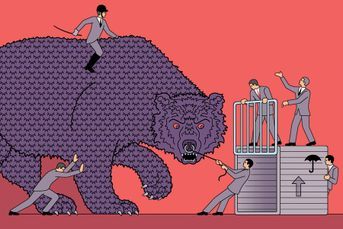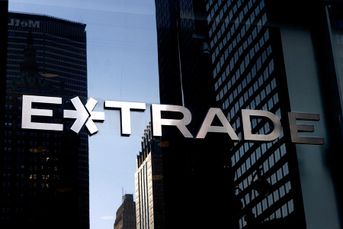China widely misunderstood, Rothman says
Andy Rothman, investment strategist for Matthews Asia, says China is a tough sell these days despite some misconceptions about the opportunities for investors.
China’s a tough sell these days, says Andy Rothman, investment strategist for Matthews Asia.
“Trying to convince clients to have money anywhere within 1,000 miles [of China] is difficult,” he told attendees at the Investment Management Consultants Association conference in New York on Monday.
But most of the people talking about China don’t go there much — and that means there’s opportunity for those willing to take the risks.
And those risks are big, because the Chinese A shares are an immature market, Mr. Rothman says. Retail investors account for 85% of the turnover in the A shares. And the Shanghai index is the most volatile stock index in the world: It’s had 31 bear markets since 1994, vs. two for the Standard and Poor’s 500 stock index, he notes.
MISUNDERSTOOD
Yet the Chinese stock market is also widely misunderstood, says Mr. Rothman, who spent 17 years in the U.S. foreign service focused on China and 14 years as CLSA’s macroeconomic strategist for China.
Among the misunderstandings:
• Private urban employment accounts for the majority of jobs in China, and has for many years.
• Most bank loans in China go to private firms, not state-run enterprises.
• A shares outperformed most stock indexes last year.
• The one-child policy didn’t shape China’s demographics as much as the growth of a modern, urban society, where families feel safe having relatively few children — the same as in the West.
The Shanghai index , which has only been open since 1990, reflects old, export-driven industrial China, Mr. Rothman says. It overweights state-owned enterprises and underweights the fastest-growing sectors: services and consumption.
China is no longer an export-driven economy, Mr. Rothman said. “The Chinese share of U.S. imports has gone up every year,” he said.
Finally, the Chinese economy is growing more slowly, but shows no sign of a hard landing, he said. “After three decades of 10% GDP growth, deceleration was inevitable,” Mr. Rothman said..
Not all of China’s story is happy, however. “Everything related to construction is grim,” he said. “This year will see the government shut cement, steel, aluminum, shipbuilding plants,” he said. “There’s a ton of overcapacity, and that will create more negative news here.”
And, as Mr. Rothman points out, China needs to work on explaining its policy moves to the rest of the world. “Its exchange-rate policy has been rational and reasonable, but they have done a terrible job of explaining it,” he said.
THE BULL CASE
The bull case for China: Consumption. Chinese wages rose 5% to 6% in the last quarter, and Chinese consumption has risen 8.7% a year since 2009, vs. 1.1% for Germany and 1.6% for the U.S., Mr. Rothman said. “The rebalancing of the Chinese economy is well under way,” he said.
He also feels that the Chinese property market is deeply misunderstood — so much so that he created his own video to rebut the August 2014 60 Minutes take on the Chinese property market.
Clearly, his optimism makes him a contrarian in the international investment management community.
“Today, China’s scale, its continued potential for volatility and limited room for conventional monetary policies make the global risk to domestic economic performance in the US, Europe, emerging markets and many other countries perhaps as great as any time in recent history,” writes Michael Arone, managing director and chief investment strategist for the U.S. Intermediary Business Group at State Street Advisers.
Nevertheless, Mr. Rothman isn’t advocating a headlong rush into China. But he does think that China’s dangers are overestimated by westerners, and that there are plenty of opportunities in China that don’t involve ghost towns, skyrocketing A shares or even outsized GDP growth.
“You don’t invest in GDP growth,” he says.
Learn more about reprints and licensing for this article.








